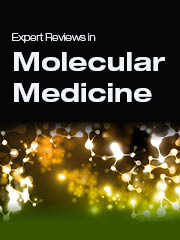Article contents
Gene therapy: potential applications in clinical transplantation
Published online by Cambridge University Press: 11 February 2004
Abstract
Gene therapy continues to offer much hope for the future treatment of a variety of clinical conditions. The development of tailored, novel gene transfer vectors will improve the efficiency and stability of therapeutic gene expression in the many settings of gene therapy. In the context of tissue and organ transplantation, gene therapy is being harnessed to prevent the acute and chronic rejection of transplanted tissues by introducing either new genes that are important in preventing rejection (e.g. co-stimulatory blocking molecules or immunosuppressive cytokines) or antisense nucleic acids to block the production of rejection-associated molecules such as adhesion molecules. The delivery of genes by gene therapy vectors that encode foreign donor antigens (alloantigens) might also be an effective means of inducing donor-specific unresponsiveness (immunological tolerance) in the recipient, perhaps eliminating the requirement for potentially harmful whole-body immunosuppression.
- Type
- Review Article
- Information
- Copyright
- © Cambridge University Press 1999
- 3
- Cited by




